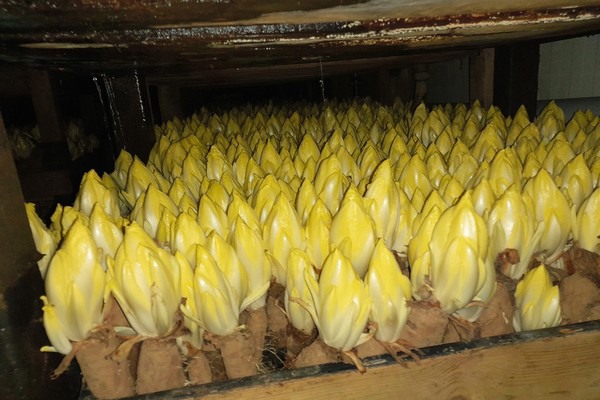Last week, Belgian Prime Minister Alexander De Croo led a diplomatic mission to China. A Memorandum of Understanding for pork exports and principle agreements for importing Belgian chicory and bell peppers were signed. It seems apples, too, will soon be able to enter the Chinese market soon. "It's a fantastic minor success, but many more steps must be taken," begins the Belgian Horticultural Cooperative Association's (VBT) Luc Vanoirbeek.
"Chinese consumers love Belgian fruit and vegetables. By promoting those products' access to the Chinese market, growers can get a better price for their apples, pears, chicory, and bell peppers", says Lode Ceyssens from the Boerenbond, who accompanied Prime Minister De Croo on the Chinese mission.

Seven production companies
"The VBT is working on about 15 country and product files, one of which is chicory. It's a perfect export product. We, along with the FAVV [Federal Agency for the Safety of the Food Chain], have, thus, been looking at export possibilities for some time. We've recently made considerable progress. Last September, our chicory producers underwent a final check, and the Chinese government eventually approved the protocol we'd drawn up. We're pleased that we could contribute to opening that market," adds Luc.
"FAVV negotiated with the Chinese, and an in-principle chicory trade deal has now been signed. That gives seven chicory production companies the go-ahead to supply export produce to that Asian country under strict production and hygiene conditions. There are a few final wrinkles to iron out, but in essence, it means we'll soon have the chance to export chicory to China."

Now, to create a sales market
The floodgates, says Luc, are, however, not fully open yet. "We must be careful not to celebrate too early. It can, obviously, be considered a small victory, but it's only part of the story. Now that the opportunity is there, you must find companies that want to export," he says.
"But you must also create a market in China with companies that want to import the product. China could be a huge market, but it's not that now that it's full speed ahead, 1.3 billion Chinese people will suddenly eat chicory. There's still a long way to go. The same goes for bell peppers, later apples, and other potential future products."
Nevertheless, the skilled sector manager considers this a boost. "It could be interesting for large Belgian export companies now that they can introduce a wider product range to China. Also, as said, there's indeed great potential. I visited China in 2019. Many wealthy people in the big cities where stores want to offer high-end products. Then, you don't immediately have to look at all 1.3 billion inhabitants; you can first consider the two percent that might begin eating Belgian chicory. That's still a great new market," Luc points out.

Introducing the product to consumers
"That's what we ultimately want to commit to. Exports offer many challenges, so that won't be the ultimate solution. Still, it contributes to exporting and marketing a top Belgian product to the rest of the world. Now, to create a market in China with VLAM and Flanders Investment and Trade. The market doors are open. The next step demands a joint effort."
According to Luc, though, the Flemish people have mastered that. "Pears are a good example. We had to put much effort into integrating them into the Chinese market. We're good at getting everyone working together for a common goal. That was successful, thanks to tastings that introduced consumers to Flemish pears. It's now vital that we take those steps with these other wonderful Flemish products," he concludes.
For more information:
Luc Vanoirbeek
Association of Belgian Horticulture Cooperatives (VBT)
luc.vanoirbeek@vbt.eu
www.vbt.eu
